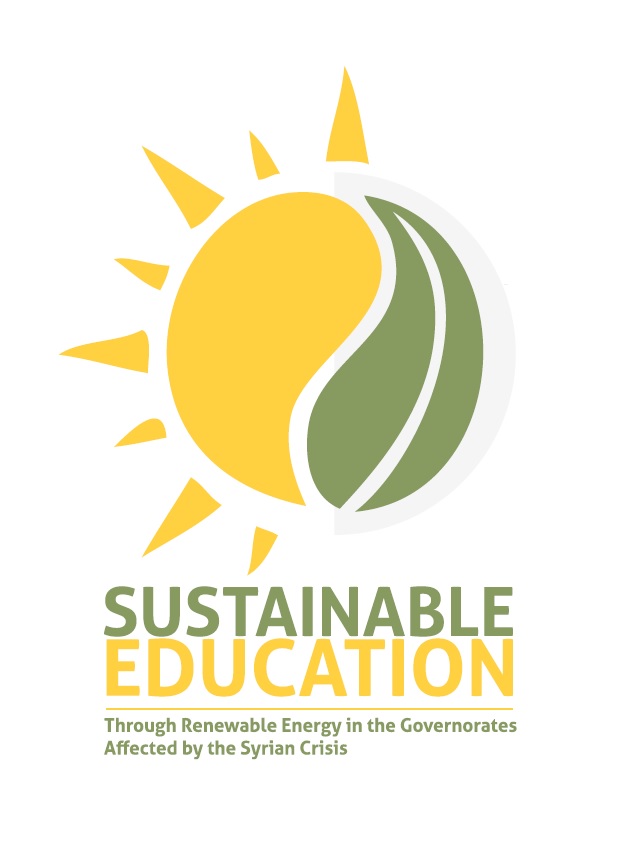Sustainable Education

Netherland's funded project:
Project titled: Sustainable Education through Renewable Energy in the Governorates Affected by the Syrian Crisis.
Introduction:
An education system that develops and nurtures creativity and innovation amongst its students is a cornerstone to the development of any society. Despite high enrolment rates and access to schools throughout the Kingdom, the quality of education remains uneven. Schools in remote areas suffer from insufficient access to electricity to operate daily services such as providing efficient heating and cooling systems within the classroom and connecting computers and online learning. Additionally, with an influx of Syrian refugees, institutions and services are overwhelmed with the increase of demands by an ever-growing population.
This project aims to contribute to the overall efforts aiming at mitigating the impact of the Syrian crisis in line with the Jordan Response Plan (JRP) focusing on the Northern governorates (Mafraq, Ramtha, Irbid, and North of Balqa'a Governorates) that are most affected by the Syrian crisis. This will be achieved through the use of Renewable Energy (RE) and Energy Efficiency (EE) systems to reduce the growing energy demands improve the learning environment in schools, increase enrollment and retention of Jordanian and Syrian students, improving the livelihood of surrounding communities and promote the social cohesion at the same time.
Target group:
1. (100) Schools selected from Mafraq, Ramtha, Irbid, and North of Balqa'a. The age group will be from (6-17) years old, and equal number of boys and girls schools will be ensured.
2. (200) Teachers (both genders) will be selected where (1-2) teachers in each school will be trained on the negative impact of climate change, the energy crisis facing Jordan, best practices and tools to rationalize energy use and reduce associated expenses and CO2, anti-littering culture, and the importance of social cohesion and community merge between the Syrian and Jordanian student through team building activities. The trained teachers will transfer the above knowledge at the weekly extracurricular classes.
3. (30,000 - 50,000) students (both genders) in the selected schools assuming that each school includes (300-500) students, will be educated in regards to the energy sector in Jordan, importance of Renewable energy and energy efficiency and its positive impact on improving the learning environment, anti-littering and social cohesion, how to conduct a need assessment of their school to properly assess the needed areas of development of the school environment.
4. (1,000) Community leaders (both genders) selected from the surrounding communities of selected schools will be targeted through awareness workshops about renewable energy, and best electricity saving practices to induce the behavioral changes of both Jordanians and Syrians, induce social cohesion and community merge concept and promote the role of women CBOs
5. (100-200) unemployed youth (Jordanians and Syrians, males and females) from the surrounding communities of selected schools who will be selected based on competitive criteria in order to be trained by the vocational training centers on installing and maintaining RE systems to equip them with the technical qualification and experience which will enable them to find jobs more easily especially in this field where a minimum of 10% will be hired by the vendors of the RE systems to install and maintain the renewable energy systems over one year to ensure sustainability. 6. Local CBOs especially women CBOs working in the surrounding communities of the selected schools.
THE TEAM
PAF was founded by H.R.H Princess Alia Al Hussein and is registered under the Ministry of Social Development. The Foundation aims to promote compassion and respect for all livings beings, using a holistic approach and bringing different stakeholders together to bring forth change.
FPEC is specialized in community empowerment through poverty reduction, community building, capacity development, awareness raising and supporting small and medium sized enterprises in the educational, environmental and social fields. FPEC's target populations are those who are most vulnerable in society: Women, youth and other marginalized groups.
Horizons works to develop a green environment and way of living within Jordan. Through civic engagement, socio-economic empowerment of vulnerable groups, awareness raising and capacity building within the environmental sector, the Jordanian society can move towards become more sustainable and environmentally friendly.
Project duration July 2017-August 2019